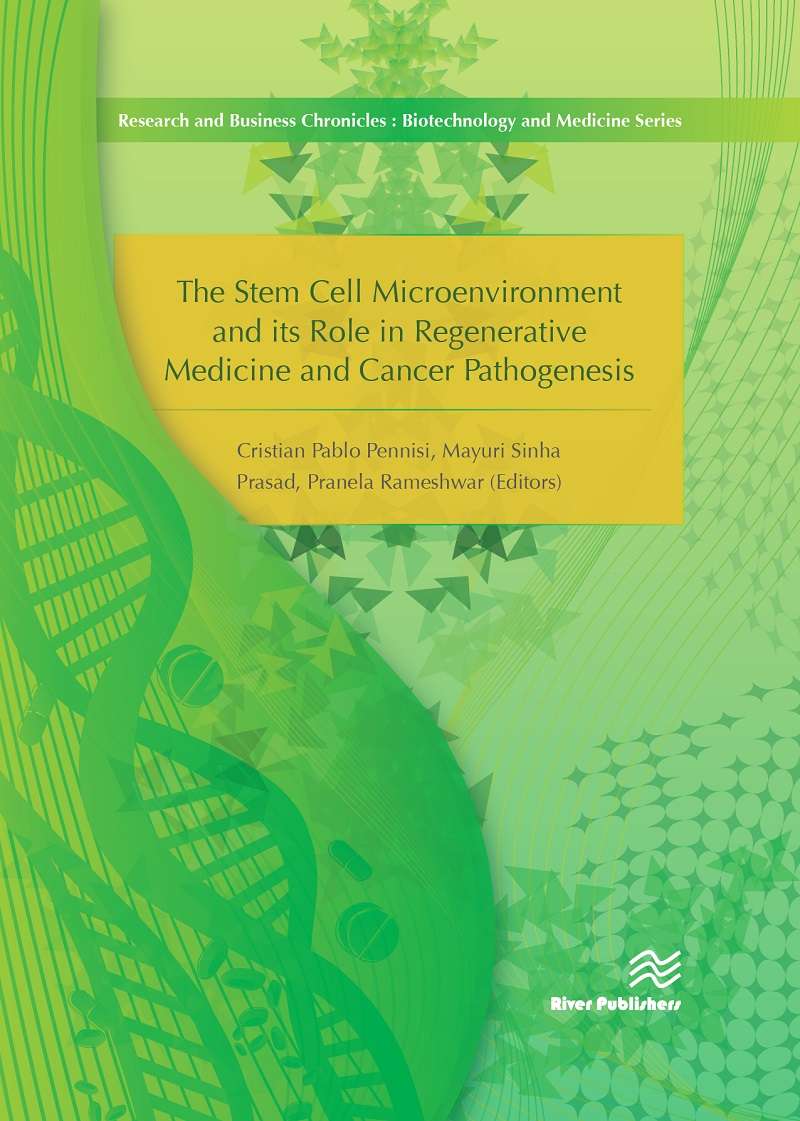Biotechnology and Medical Research
The Stem Cell Microenvironment and its Role in Regenerative Medicine and Cancer Pathogenesis
Editors:
Cristian Pablo Pennisi, Aalborg University, Denmark
Mayuri Sinha Prasad, Indiana University-Purdue University Indianapolis, USA
Pranela Rameshwar, Rutgers University, USA
This book discusses some of the recent advances in stem cell research that may help understanding the properties of the niche that govern stem cell fate. Technical topics discussed include:
- Stem cell biology
- Cancer stem cells
- Stem cell interactions with biomaterials
- Engineering the stem cell microenvironment
- Stem cells in tissue regeneration and repair
The Disputationes Workshop series is an international initiative aimed at disseminating stem cell related cutting edge knowledge among scientists, healthcare workers, students and policy makers. This book emerges as a result of the scientific contributions presented and discussed during the fifth Disputationes Workshop held in Aalborg (Denmark) in April 2014. The stem cell microenvironment and its role in regenerative medicine and cancer pathogenesis is ideal for academic staff and master/research students in biomedical and health sciences
Chapter 1: Selective Expansion of Limbal Epithelial Stem Cells in Culture Using Hypoxia
by Chris Bath, Sufang Yang, Danson Muttuvelu,
Trine Fink, Jeppe Emmersen, Henrik Vorum,
Jesper Hjortdal and Vladimir Zachar
Chapter 2: Mesenchymal Stem Cells and Pathotropism: Regenerative Potential and Safety Concerns
by Garima Sinha, Sarah A. Bliss, Lauren S. Sherman, Oleta A. Sandiford,
Vipul Nagula and Pranela Rameshwar
Chapter 3: Prospective Technologies for Cardiac Repair
by Francesca Pagliari, Luciana Carosella and Paolo Di Nardo
Chapter 4: Does Inter-Individual Heterogeneity in the Normal Breast Corrupt Cancer Stem Cell and/or Cancer-Specific Signaling Characterization?
by Harikrishna Nakshatri
Chapter 5: The Role of Physical Microenvironmental Cues on Myogenesis: Implications for Tissue Engineering of Skeletal Muscle
by Cristian Pablo Pennisi, Stavros Papaioannou, John Rasmussen
and Vladimir Zachar
Chapter 6: Effect of Bioactive Growth Surfaces on Human Mesenchymal Stem Cells: A Pilot Biomarker Study to Assess Growth and Differentiation
by Liliana Craciun, Pranela Rameshwar, Steven J. Greco,
Ted Deisenroth and Carmen Hendricks-Guy
Chapter 7: Embryonic Stem Cell Markers in Cancer: Cripto-1 Expression in Glioblastoma
by Meg Duroux, Linda Pilgaard and Pia Olsen
Chapter 8: Artificial Corneas, and Reinforced Composite Implants for High Risk Donor Cornea Transplantation
by May Griffith, Chyan-Jang Lee and Oleksiy Buznyk
Chapter 9: Molecular Mechanisms of Smooth Muscle Cell Differentiation from Adipose-Derived Stem Cell
by FangWang and Jeppe Emmersen
